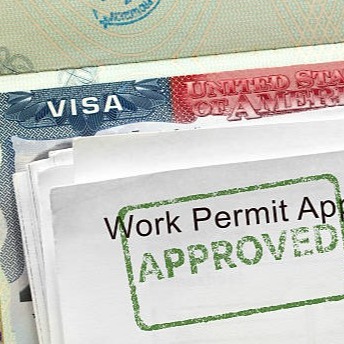
For professionals in the entertainment sector contemplating a career stint in the United States, the O1 visa is a potential pathway. This visa encompasses not just voice actors, but also screen actors, DJs, and a wide range of other artists artists. There's a prevailing myth that securing this visa is a mere formality, a myth that this article aims to debunk. The O1 visa, designed for 'Aliens with Exceptional Abilities in the Arts', has specific requirements. Furthermore, once you secure yours, we'll also guide you on how your family can obtain their respective visas. Obtaining the O1 visa for actors is no easy task.
Professional Biography: A comprehensive account of your global professional journey is imperative. This will be integrated into the cover letter accompanying your petition, typically drafted by your attorney.
Resume/CV: A detailed record of all your professional achievements. It's crucial that your IMDb presence is robust, and every credit is verifiable.
Press Coverage: A collection of 10 to 20 articles from newspapers or magazines highlighting your contributions to successful productions. Articles with a global impact are given higher consideration.
Recommendation Letters: Four to six letters from U.S.-based entertainment professionals like directors, producers, or agents. These letters should provide in-depth evaluations of your accomplishments.
Personal Documents: A copy of your passport and educational credentials are mandatory.
Screen Captures: Providing clips or screen grabs from your productions lends credibility to your application.
Awards and Nominations: Recognitions, both personal and for projects you've been a part of, especially those with global renown, bolster your application.
High-Value Contracts: Displaying contracts that highlight a lucrative remuneration, preferably equivalent to or above USD 100 per hour, strengthens your case.
An essential aspect of the application is the 'deal memo', essentially a schedule of your U.S. commitments over the visa's three-year span. While your attorney handles the documentation, networking and planning fall on your shoulders.
Prior to petitioning for the visa, it's advisable to obtain no-objection letters from the entertainment unions, namely Sag-Aftra and AMPTP. After completing the initial steps and obtaining these letters, which can take up to a month, your attorney can officially file your visa application.
The final stage involves waiting. While one might hope for a month-long wait, a more realistic timeline is around three months. An expedited process is available for an additional fee, but patience is recommended as these applications undergo stricter scrutiny. In the event of a denial, it's crucial to address the feedback and reapply. Upon approval, the last step is scheduling a consulate appointment at the U.S. embassy. For further details on how your family can secure their visas following your successful application, continue reading.
O1 Visa for Actors by Alan Shires